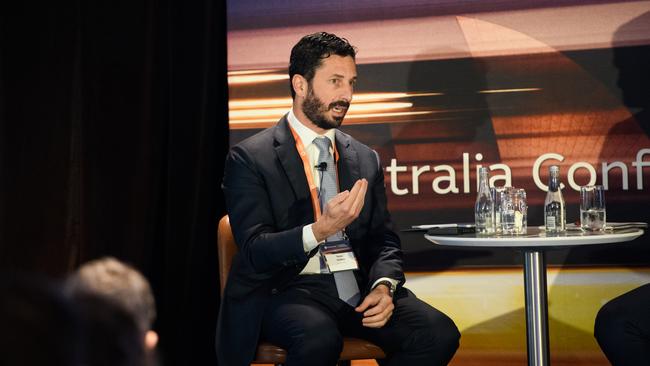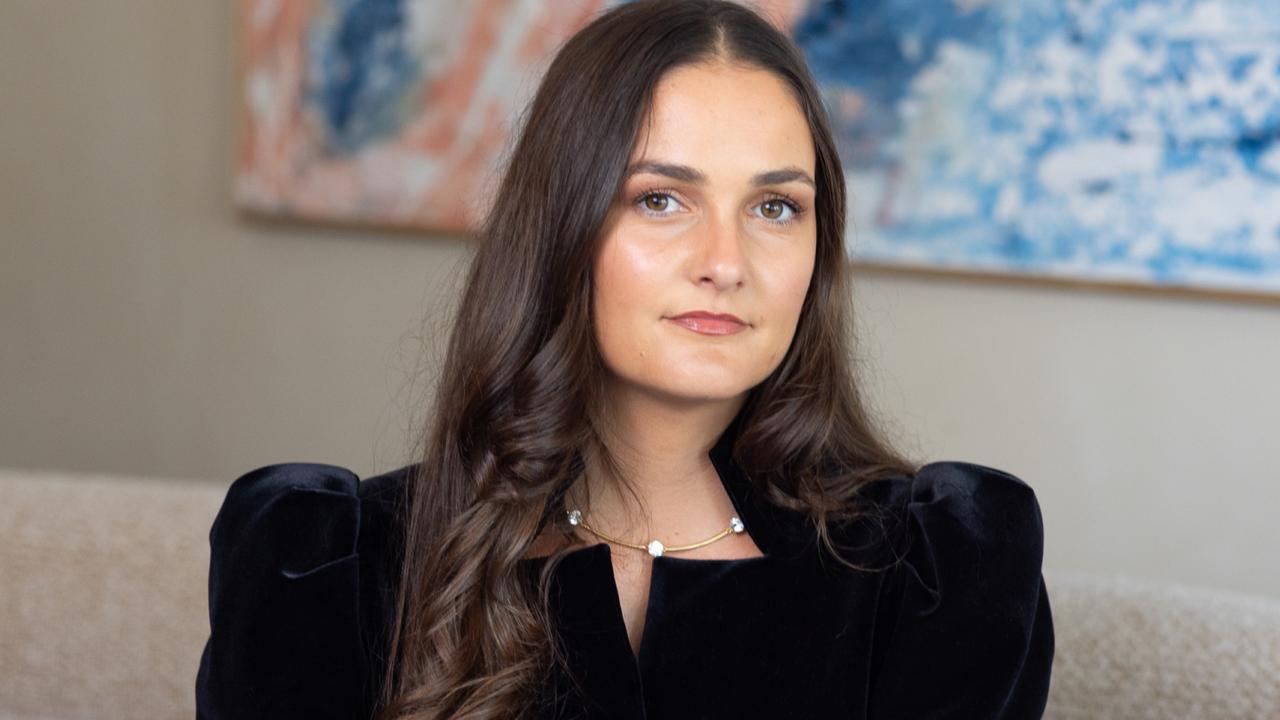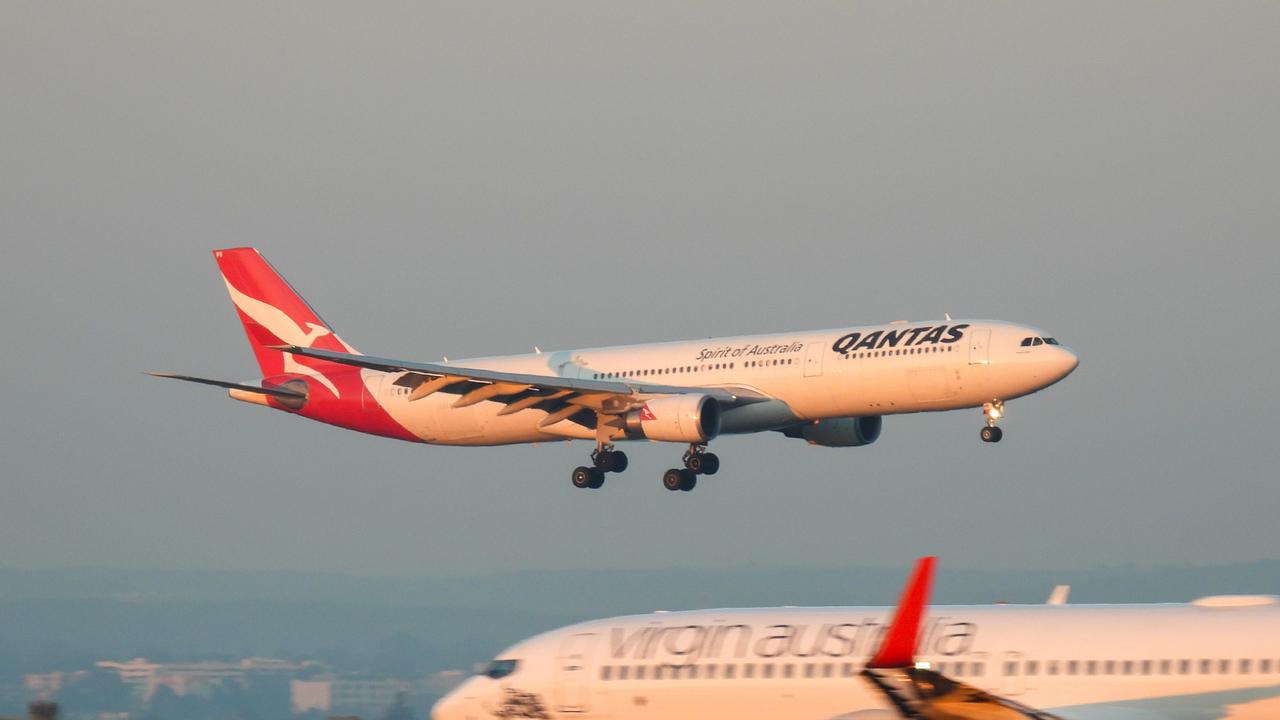Seven Group boss Ryan Stokes tips interest rate cuts by end of year
Seven Group boss Ryan Stokes believes interest rates should still drop later this year, despite warnings from the RBA that it discussed raising the official cash rate this week.

Seven Group chief executive Ryan Stokes believes interest rates should fall later this year, based on current inflation levels, despite warnings from the Reserve Bank that it discussed raising the official cash rate this week.
The RBA said on Tuesday it expected inflation to remain above the target rate of 2-3 per cent this calendar year, at 3.8 per cent, and that “the expected path for the cash rate has shifted up”.
The billionaire Stokes family has an eagle eye on how rates are impacting the economy through rate-sensitive demand for advertising at its media business and construction demand from Boral and its Coates industrial hiring business. And the Seven Group boss believes the RBA needs to look beyond just controlling inflation.
“We would like to see rates eased towards the end of the year,” Mr Stokes said the sidelines of the Macquarie Australia Conference.
“If we look at where inflation is, I think if it’s in the threes that’s comfortable in the medium term. I would like to see the target range looked at and how to balance the economy beyond purely controlling inflation.”
The RBA has bumped up its inflation figure for this year from the 3.2 per cent it forecast just three months ago, as demand in the economy continues to outstrip supply. Its announcement and subsequent coverage by economists, finance traders and the media led to a shift in expectations to a rate rise this year, from earlier forecasts of a fall.
Mr Stokes said central banks used the media to try to change consumer behaviours before they needed to pull levers like raising rates, banking on John Maynard Keynes’ concept of animal spirits.
The theory concerns acting on emotion, because people have a preference for action over inaction, before considering benefits and probabilities.
“It’s the notion of animal spirits, absolutely, and I think it can be counterproductive because I don’t think it necessarily does change behaviour. But it’s a strategy that central banks like to use.”
The billionaire businessman may well be right. Despite the steepest rate rises in history and official interest rates remaining at a 12-year high of 4.35 per cent, Australians have continued to pile into real estate, pushing prices to record highs in many states even as the banks start to see signs of financial pressure on home loan borrowers. Meanwhile, Seven Group is outperforming despite what Mr Stokes describes as “tailwinds”.
The chief executive delivered an optimistic outlook for the nation’s biggest industrial conglomerate, saying he is “very comfortable” about how this year and next look without any acquisitions currently on the table.
Less than a month after Seven received a recommendation from the board of Boral for its $1.9bn takeover of the shares it doesn’t already own in the cement and asphalt maker, the son of Seven founder Kerry Stokes is seeing solid growth across its industrial businesses.
“We feel very comfortable around how this year looks. Our three industrials businesses are performing to plan and the outlook into 2025 feels similarly quite robust.”
Seven Group smashed market expectations for its half-year earnings in February and forecast “mid to high-teen EBIT growth” for the fiscal year without factoring in an interest rate cut in its financial modelling.
The company has come a long way from its famed Network Seven television roots. In 2017 Kerry Stokes decided to sell WesTrac’s China unit for $535m and focus on domestic industrials. Its Australian WesTrac business provides Caterpillar machines to most of the nation’s mines, while Coates Hire is the country’s largest equipment rental firm. Beach Energy should benefit from a renewed focus on gas, and Boral is one of the country’s best turnaround stories since Seven bought in.
“Our focus is to drive that execution and return potential through WesTrac, Coates and Boral and across our portfolio,” said Mr Stokes. “We feel really pleased with where the business is. We have three of the best industrial businesses performing well in a tailwind dynamic. We still see ourselves trading below peers. It still presents an opportunity.”
As for why Seven took a stake in Boral, then sold some its shareholding last year, before backflipping and making a full takeover, Mr Stokes pointed to the rapid turnaround of the perennially underperforming Boral under the leadership of Vik Bansal. The turnaround was “faster than we expected … it was part of the impetus. Access to cash was a key aspect as well.”






